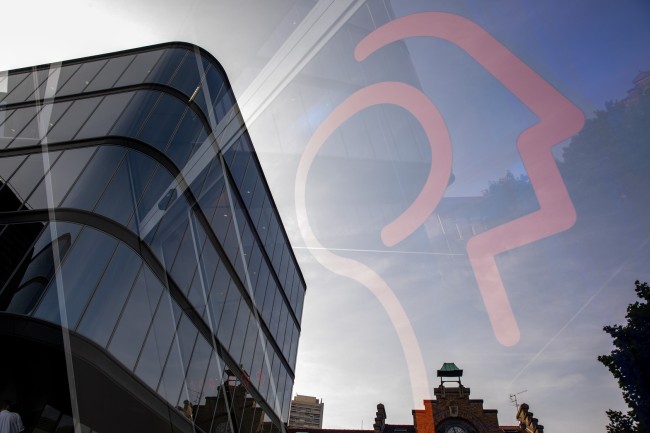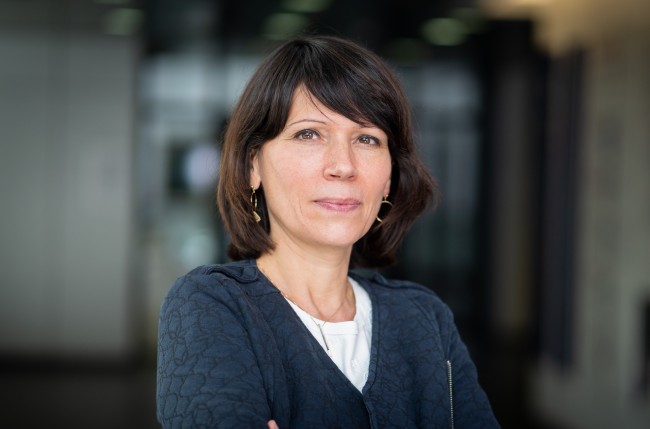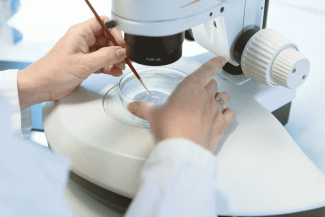Donations: effective arrangements for immediate transmission, to help the researchers of Paris Brain Institute now.
What is a gift?
- A gift is a gift by a person ("the donor") of property during his or her lifetime (as opposed to a "bequest" that only takes effect upon death) to a person or organization such as Paris Brain Institute.
- Please note: when the donor has heirs or common-law partners (children or spouse), the donation must not encroach on the share reserved for them at the time of his or her death (the “common-law share”).
Example: Mr. Martin has 3 children. It has assets amounting to €800K. The share reserved for his children is ¾, or 600K€ and Mr Martin will be able to make a donation of 200K€ maximum during his lifetime.
- The donation is irrevocable. In the case of immovable property, a notarial act is required. It is also advisable to go through a notary when the amount donated is significant in relation to the donor's assets. Donations by notarial deed are presented here (not direct manual donations by cheque, bank card or bank transfer, which do not require a notarial deed).
Donation: what kind of goods are we talking about?
It is possible to make a donation of real estate (apartment, house, building, local…) or furniture (securities, money, works of art…).
In the case of real estate, once the donation has been registered, Paris Brain Institute will then take charge of its sale with the help of trusted professionals (real estate agency, notary’s real estate department…). We ensure that each asset is valued to the best of our ability to serve Paris Brain Institute research needs.
What are the tax reductions linked to a donation?
As with a manual donation, the donation involves tax reductions for the donor, income tax (66%) or capital tax for taxable persons, or inheritance tax in the case of an inheritance donation.
Learn more about the Legacy
In the fight against Alzheimer’s, Parkinson’s, brain tumours, ALS, epilepsy, depression, stroke, multiple sclerosis… it is not just the researchers who are driving the research forward.
What are the 4 forms of donation ?
Temporary gift of usufruct
A person wishing to retain ownership of an asset and to reward an organization such as Paris Brain Institute foundation may make a temporary usufruct donation, often called a UTD.
In practice, the person retains "bare ownership" of the property and transfers the usufruct (i.e., the fruits and income generated by the property) for a given period of time.
This generally applies to real property (e.g. a building) or a portfolio of securities.
This donation must meet 5 conditions:
- Must be in the form of a notarized document
- Be carried out for the benefit of a body of general interest entitled to receive donations, as is the case with Paris Brain Institute
- Be carried out for a period of at least 3 years
- The donated assets must contribute to the recipient organization’s purpose: brain research in the case of Paris Brain Institute
- The rights of the usufructuary must be preserved.
The following table shows the results of the survey.
At the end of the minimum period of 3 years, the donor can take back full ownership of the property, extend the donation of the usufruct of the property, or give the property definitively.
Your tax benefits:
- income from Paris Brain Institute property is no longer subject to Income Tax
- If the donor is subject to the Capital Real Estate Tax (IFR) and the gift is real property, the fee simple value of that property is no longer included in the taxable capital of the IFI during the life of the gift, thereby reducing the amount of that tax.
The gift on succession
This donation allows a person who has just inherited to donate part of his or her inherited property to a Foundation such as Paris Brain Institute.
The donation must be made within 12 months of the death of the person being inherited. This should be discussed immediately with the notary in charge of the estate.
Once the donation is registered with the notary, Paris Brain Institute sends the donor a specific tax receipt, which the notary attaches to the declaration of succession. The amount of the donated property is then deducted from the basis for calculating inheritance tax.
Ownership
It consists of donating property (real estate or movable property) that is owned and no longer wishes to be preserved or used.
Bare-ownership donation (otherwise known as usufructuary donation)
The donor transfers the sole ownership of the property and continues to use the property or to receive the proceeds and income until the donor dies. This bare-property donation entitles you to a tax reduction on income tax (and/or) on capital property tax (IFI).
Tax reductions: the amount of a donation, in whole or in bare ownership, is deductible up to 66% of the income tax (IR). Since the deduction amount is capped each year at 20% of net taxable income, the portion of gifts that did not qualify for the tax reduction in the year of the gift may be carried forward for five years.
If the donor is subject to the Real Estate Capital Tax (REAT), he or she may, if he or she prefers, deduct 75% of the amount of this donation from his or her REAT, or choose to use part of the donation to the REAT and the remainder to reduce the IR.
Discover the testimonial of Chantal and Christian L.
Chantal and Christian L. have been donors for many years and have chosen to extend their involvement with the Institute by making a temporary usufruct donation (DTU) of a number of business titles.
For three years, dividends from these titles will be paid to the Institute, helping to accelerate the progress of researchers in their fight against brain diseases.
Already donors, you have chosen to extend your commitment by supporting the Institute with a DTU of securities. Can you tell us why?
The starting point for our interest in Paris Brain Institute is mental health research, especially of youth. We then made "simple" donations each year and gradually discovered the full scope and scope of the Institute’s research into the brain and all the diseases that affect it.
We regularly attended conferences hosted by the Institute. We have always found them very interesting! This is a real plus for the Institute, compared to other organisations that do not offer us any feedback. And that is also one of the reasons why we have gone further in our commitment.
What does this form of support mean to you?
We are co-shareholders in a family-owned pharmaceutical company. The starting point of our approach is our desire to return to the search for the dividends of research that we do not need.
At the age of 80 and 82, the temporary aspect of the donation (over a period of 3 years) also suits us well. It is also a wish in relation to the freedom of our children afterwards.
Furthermore, in our opinion, the interest of the DTU in relation to a normal donation is that the Institute, which is exempt from taxes, should receive the full dividend. Whereas if we collected the dividends and then made a donation, they would be deducted from the 30% tax. So there would be less for research, which is our primary motivation.
How did you make this donation?
We set it up with a notarial study that is very familiar with our family company and that drafted the donation act based on our wishes. Once the draft act had been validated by the Institute, Professor Gérard Saillant, President of Paris Brain Institute, came to co-sign the donation act under consideration, in the presence of our son, who represented us.
We are very pleased to be able to increase our support for researchers in this way. Research on the brain must progress, there are too many neurological diseases around us.

Contact Us
Are you wondering about donation?

Carole Clément, Responsable des relations donateurs et des legs, donations et assurances-vie, se tient à votre entière disposition pour vous écouter et répondre à vos questions, en toute confidentialité et sans engagement de votre part. N’hésitez pas à la contacter au 01 57 27 41 41 ou par email.
Ecrire un mail
